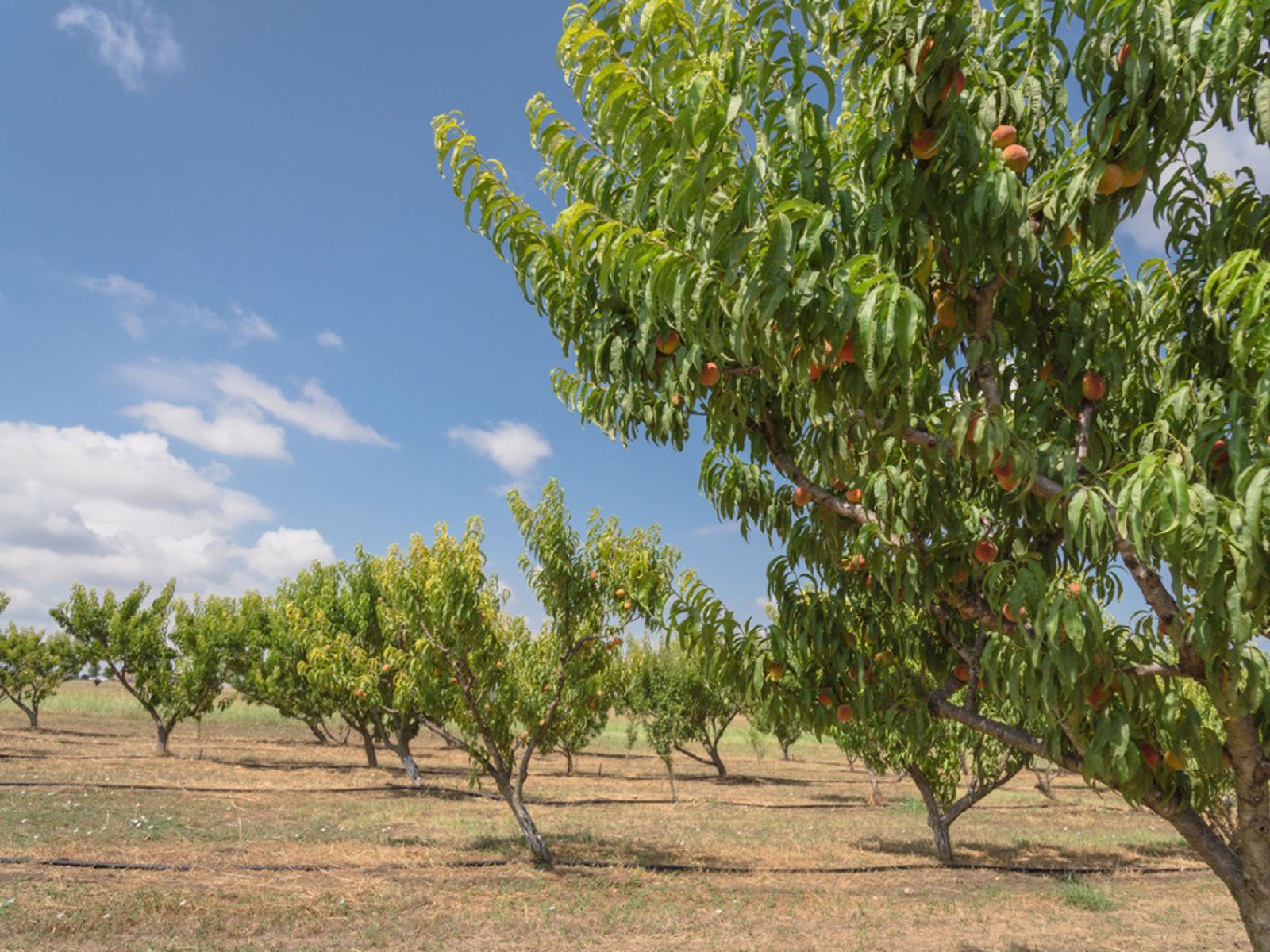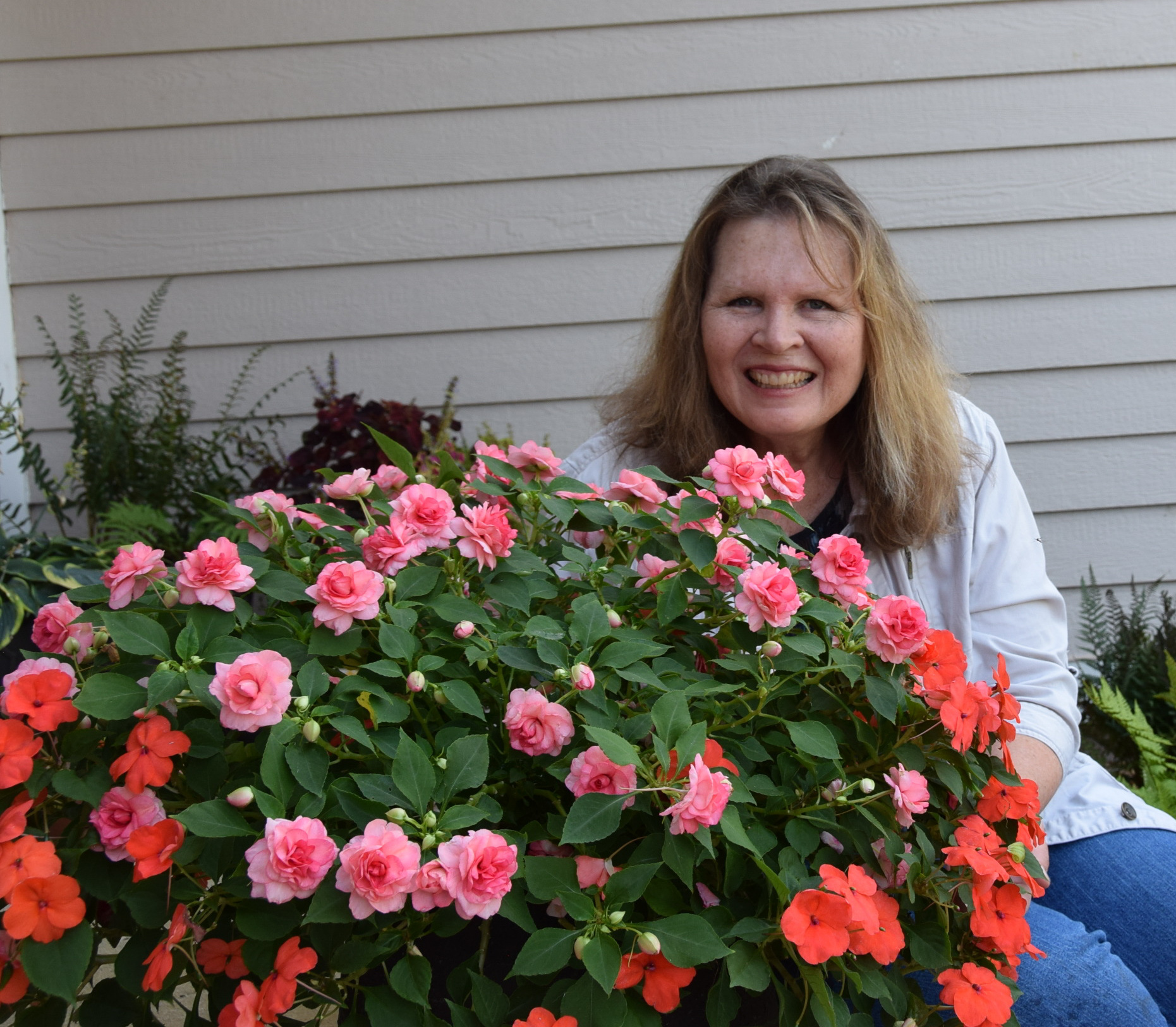South Central Fruit Trees – Growing Fruit Trees In The South


Growing fruit trees in the home garden is an increasingly popular hobby in the South. Plucking lush, ripe fruits from a tree in the backyard is very satisfying. However, the project should not be taken lightly. Growing fruit trees requires careful planning, preparation, and execution. The plan should include a regularly scheduled fertilizing, spraying, irrigating, and pruning program. Those who choose not to spend the time on fruit tree care will be disappointed in the harvest.
Where to Plant Fruit Trees
Site selection is critical to the success of fruit tree production. Fruit trees require full sun but will tolerate part shade; however, fruit quality will be diminished.
Deep, sandy loam soils that drain well are best. For heavy soils, plant fruit trees in raised beds or on berms built up to improve drainage. For those with a limited garden area, small-sized fruit trees can be planted amongst ornamentals.
Eradicate weeds in the planting area the year before it is time to plant trees. Perennial weeds such as Bermuda grass and Johnson grass compete for nutrients and moisture with young fruit trees. Keep weeds at bay, especially the first few years, as trees become established.
Southern Fruit Tree Varieties
Choosing fruit trees for South Central states also takes some planning. Determine the kind of fruit you want and how many cultivars and quantities of each you will need. Many fruit tree flowers need pollen from a second cultivar of the type of fruit you are growing in order for pollination to occur. This is called cross-pollination. Some fruit cultivars are self-fertile, which means they produce the pollen on their own trees to set fruit.
It’s also important in the South to be aware of chilling requirements for the fruit you would like to grow. Fruits need a certain number of cold winter hours between 32- and 45-degrees F. (0-7 C.) for sufficient dormancy.
Choose disease-resistant varieties as well as heat tolerant. Southern fruit tree varieties for the South-Central states of Oklahoma, Texas, and Arkansas that have been researched and tested for the home garden are listed below.
Gardening tips, videos, info and more delivered right to your inbox!
Sign up for the Gardening Know How newsletter today and receive a free copy of our e-book "How to Grow Delicious Tomatoes".
Oklahoma Fruit Tree Varieties
Apple
Peach
- Candor
- Sentinel
- Redhaven
- Reliance
- Ranger
- Glohaven
- Nectar
- Jayhaven
- Cresthaven
- Autumnglo
- Ouachita Gold
- White Hale
- Starks Encore
- Fairtime
Nectarine
- EarliBlaze
- Redchief
- Cavalier
- Sunglo
- RedGold
Plum
- Stanley
- Bluefre
- President
- Methley
- Bruce
- Ozark Premier
Cherry
- Early Richmond
- Kansas Sweet
- Montmorency
- Northstar
- Meteor
- Stella
Pear
- Moonglow
- Maxine
- Magness
Persimmon
- Early Golden
- Hachiya
- Fuyugaki
- Tamopan
- Tanenashi
Fig
- Ramsey
- Brown Turkey
Recommended Varieties for East Texas
Apples
- Red Delicious
- Golden Delicious
- Gala
Apricots
- Bryan
- Hungarian
- Moorpark
- Wilson
- Peggy
Figs
- Texas Everbearing (Brown Turkey)
- Celeste
Nectarines
- Armking
- Crimson Gold
- Redgold
Peaches
- Springold
- Derby
- Harvester
- Dixieland
- Redskin
- Frank
- Summergold
- Carymac
Pears
- Kieffer
- Moonglow
- Warren
- Ayers
- Orient
- LeConte
Plums
- Morris
- Methley
- Ozark Premier
- Bruce
- All-Red
- Santa Rosa
Fruit Trees for North Central Texas
Apple
- Red Delicious
- Golden Delicious
- Gala, Holland
- Jerseymac
- Mollie's Delicious
- Fuji
- Granny Smith
Cherry
- Montmorency
Fig
- Texas Everbearing
- Celeste
Peach
- Bicentennial
- Sentinel
- Ranger
- Harvester
- Redglobe
- Milam
- Majestic
- Denman
- Loring
- Belle of Georgia
- Dixieland
- Redskin
- Jefferson
- Frank
- Fayette
- Ouachita Gold
- Bonanza II
- Early Golden Glory
Pear
- Orient
- Moonglow
- Kieffer
- LeConte
- Ayers
- Garber
- Maxine
- Warren
- Shinseiki
- 20th Century
- Hosui
Persimmon
- Eureka
- Hachiya
- Tanenashi
- Tamopan
Plum
- Morris
- Methley
- Ozark Premier
- Bruce
Arkansas Fruit Tree Varieties
In Arkansas, it’s recommended to grow apples and pears. Stone fruits such as peaches, nectarines, and plums are more difficult because of their susceptibility to pests.
Apple
- Ginger Gold
- Gala
- William’s Pride
- Pristine
- Jonagold
- Suncrisp
- Red Delicious
- Enterprise
- Golden Delicious
- Arkansas Black
- Granny Smith
- Fuji
- Pink Lady
Pear

After graduating from Oklahoma State University with a degree in English, Susan pursued a career in communications. In addition, she wrote garden articles for magazines and authored a newspaper gardening column for many years. She contributed South-Central regional gardening columns for four years to Lowes.com. While living in Oklahoma, she served as a master gardener for 17 years.